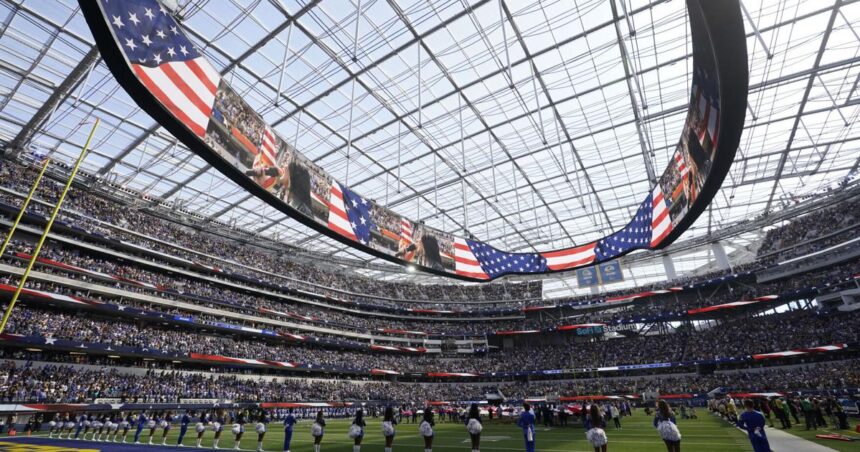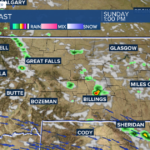PARIS — The Los Angeles Mayor Karen Bass is preparing to receive the Olympic flag ahead of the 2028 Summer Games, with the burning question about notorious gridlocked traffic in Los Angeles on everyone’s mind.
“A no-car Games,” Bass declared on Saturday.
Bass and Casey Wasserman, chairman of the LA 2028 organizing committee, have already outlined some of the planning strategies for the upcoming games, with a focus on tackling the traffic issue before Paris organizers hand over the Games during Sunday’s closing ceremony. Bass addressed the traffic concerns in her opening speech.
“We’re already in the process of expanding our public transportation system to create job opportunities and ensure a no-car Games,” she stated. “This is a significant shift for Los Angeles, a city known for its car-centric culture. We are working towards building a greener and more sustainable Los Angeles.”
People are also reading…
The plan includes making public transportation the primary mode of access to the venues in Los Angeles, with 3,000 borrowed buses from across the country and encouraging businesses to allow employees to work from home during the 17-day period to reduce traffic congestion.
This will be Los Angeles’ third time hosting the Olympics, and Bass reassured that the panic over traffic before the 1984 Games turned out to be unnecessary.
“In 1984, there was widespread fear of major traffic problems, but it didn’t materialize,” Bass recalled. “However, back then, we didn’t have the technological advancements we have today. The COVID experience has shown us that remote work is possible.
Tom Bradley, the mayor of Los Angeles in 1984, implemented strategies such as staggering work hours for local businesses to reduce traffic. Bass aims to take it further by allowing nonessential workers to work remotely during the Games.
“To achieve a no-car Olympics, we need to deter people from driving,” she emphasized.
Compared to Paris, Los Angeles has a less extensive public transportation system, with only two subway lines. Bass is yet to secure commitments from LA-based businesses to support remote work during the Games.
“Our approach will involve engaging with major employers in the city to discuss options like staggered work hours, which was successfully implemented even before the era of advanced technology,” Bass explained. “Given the shift towards remote work post-COVID, it shouldn’t be a major challenge this time.”
“The experience of working remotely for 17 days might be easier now, considering the lessons learned during the pandemic,” she added.
Addressing the homeless problem
Tackling the homelessness crisis is a crucial aspect for Los Angeles, with over 75,000 unhoused individuals in the county and 45,000 in the city of LA in 2024. Efforts to reduce these numbers are necessary for the city’s global presentation during the Games.
Paris successfully relocated thousands of unhoused individuals before hosting the Games.
Bass stressed the ongoing collaboration between the government and the private sector to address homelessness and ensure housing for the unhoused population in Los Angeles.
“Our commitment is to provide housing for Angelenos and address the underlying reasons for homelessness by transitioning individuals into temporary and permanent housing,” Bass affirmed.
Ensuring safety in LA
Wasserman mentioned that LA organizers are already coordinating with the federal government on security preparations.
“Our priority is to create a safe environment while also delivering an exceptional experience, without compromising one for the other,” Wasserman stated. “The Olympics require unique security measures, and LA’s experience in hosting major events will contribute to a seamless execution.”
The operating budget for the Games is $6.8 billion, excluding security costs, which will be covered by taxpayers.
Impact of the US election
While the outcome of the presidential election in November is expected to have some influence on the Games, Bass and Wasserman are not concerned.
Wasserman highlighted the bipartisan support received from sitting presidents throughout Los Angeles’ bid process, emphasizing unity under the national flag and anthem.





